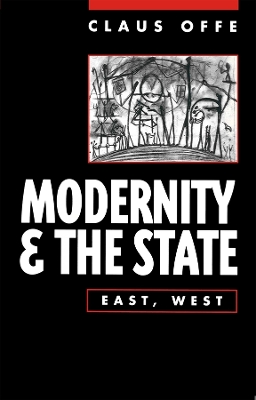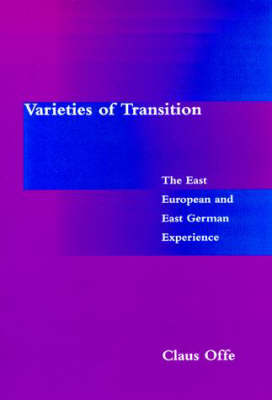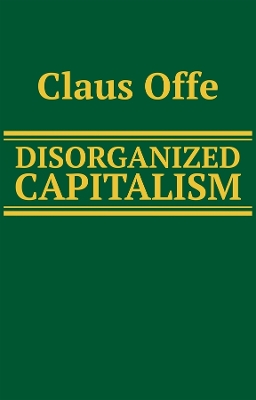Studies in Contemporary German Social Thought
3 total works
The book is divided into four parts. In the first of these, Offe explores general questions concerning the nature and stability of modern societies and critically examines contemporary approaches to political theory. In the second part he examines new developments facing the state and assesses new departures in state theory. In the third part, problems and policy prescriptions which have emerged in connection with developments in Western welfare states are addressed. In the final part, Offe seeks to illuminate through comparative analysis many of the new questions facing political sociology in the light of the fall of the Berlin wall in 1989. The result is a highly original account of developments in contemporary society both in the West and in the East.
Modernity and the State will be welcomed by students and scholars in social and political theory, political sociology and East European studies.
Should the advanced Western democracies, contrary to their prevailing self-image as 'planned' and 'managed', be seen as highly disorganized systems of social power and political authority? If so, what are the symptoms, consequences and possible remedies of these disorganizing tendencies?
In this newly translated work, almost all of which has until now been unavailable to English-speaking readers, Claus Offe seeks to provide answers to these questions. Moving beyond the boundaries of both Marxism and other forms of political sociology, he gives particular emphasis to the growth of serious cleavages within the work force (and between the employed and the unemployed), the importance of the 'informal' sector, the severe difficulties faced by trade unions in coping with the present economic crisis, the vulnerability of 'neo-corporatist' mechanisms, and the failures of state policy-making based on either majority rule or bureaucratic administration. In critically examining these and other pressing problems of advanced capitalist democracies, Claus Offe also calls into question such widely-held assumptions of contemporary social science as the fairness and neutrality of liberal democratic mechanisms of participation and representation, the centrality of both the category of work and the irreconcilable division / antagonism between Labour and Capital, and the feasibility and desirability of 'full employment'.
Claus Offe is one of the most important social scientists writing today and the author of many well-known and influential essays. This new work makes his ideas available to English-speaking readers in a systematic and comprehensive way. It is bound to become a standard point of reference for discussions of the present state and future prospects of the industrially advanced countries in modern times.


